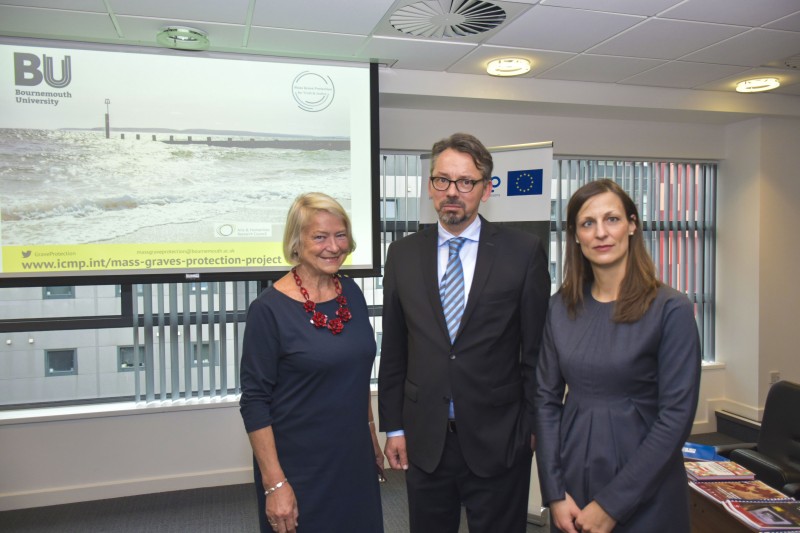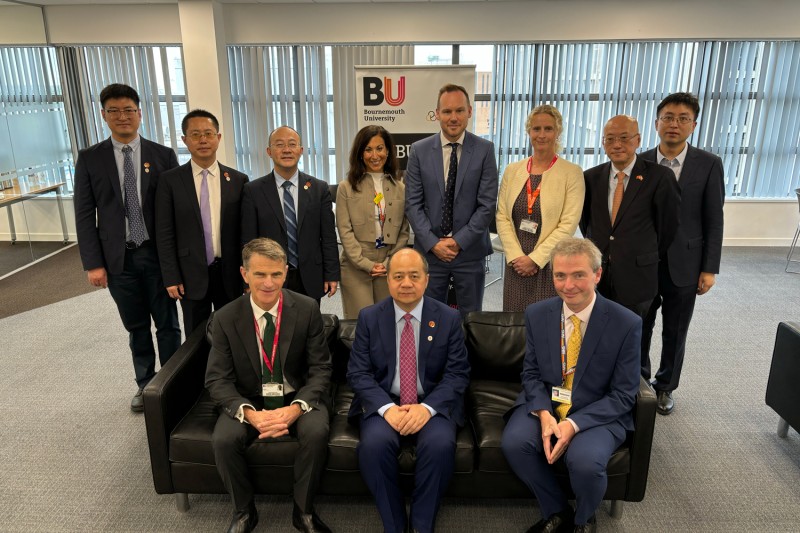An international delegation of legal and forensic experts has gathered at Bournemouth University, with the aim of producing a series of guidelines to support the protection of mass graves worldwide.
The gathered group of experts, from judges and investigators to academics and civil society activists, will spend two days debating how to progress mass grave investigation and protection with the aim of developing an international standardised set of guidelines.
The structured roundtable sessions will look to take issues such as mass grave discovery and safe reporting; protective measures around mass graves; identification and repatriation; investigation; and justice and pull all themes together to create a single set of international guidelines.
Dr Melanie Klinkner researches the issue at Bournemouth University, and is co-ordinating the creation of the guidelines. She said, “The problem is that across the world we’ve got a lot of mass graves, and a lot of these mass graves remain unprotected, which means they might be inadvertently contaminated, making identification efforts and admissibility in a court of law more difficult.
“But it isn’t just a legal issue, missing persons have a profound impact on the families, without repatriation families may not be able to grieve the loss of a loved one. Delays, lack of standardisation or lack of knowledge during non-expert excavation might mean that you never are in a position to understand what happened. Proper mass grave protection and investigation is vital to secure truth and justice for the survivors.”

The event was opened by Bournemouth University Chancellor Kate Adie CBE, who drew on her own experience of conflict zones and reporting around the issues, as well as a number of examples from her own research to set the scene for the important discussion.
The issue is prevalent worldwide, with startling statistics around the numbers of mass graves – both historic, such as graves still being excavated from World War One and World War Two – and recent, with over 200 mass graves found in Iraqi territory formerly controlled by ISIL, 17,000 sets of human remains from 94 graves in Srebrenica, Bosnia, and 855 mass graves recorded by the Mexican government in recent years.
The roundtable includes experts from the International Commission for Missing Persons (ICMP), barristers and judges, the International Criminal Tribunal for the former Yugoslavia (ICTY), and INTERPOL.
Dr Klinkner continued, “There is a lot of expertise here, criminal expertise, people who have spent years at mass graves, excavating them, organising them, deciding what to present in a court of law. We’ve also got organisations in the room that have revolutionised the DNA application for identification purposes. Civil Society activists here have been arguing for the rights of these victims to be adhered to. They understand what the issues are, and what structurally needs to be put in place to deal with these mass graves and their complexity.
“All of these elements now need to come together to provide a practical guidelines that will bring dignity to victims, closure to families, and proper legal process to aid in prosecution against those responsible for creating these mass graves in the first place.”
For more information about the research into mass grave protection taking place at Bournemouth University, visit: https://www.bournemouth.ac.uk/research/projects/mass-grave-protection-truth-justice
For further information about the issues surrounding mass graves, visit the International Commission for Missing Persons website: https://www.icmp.int/



